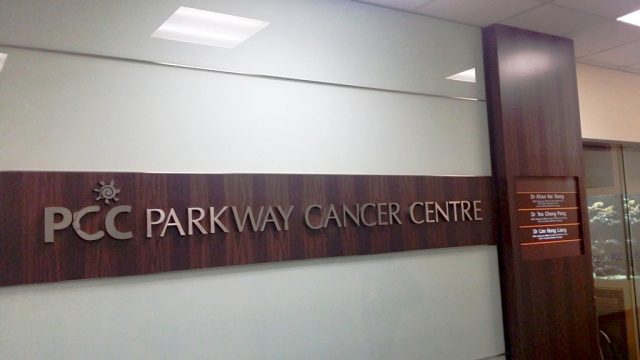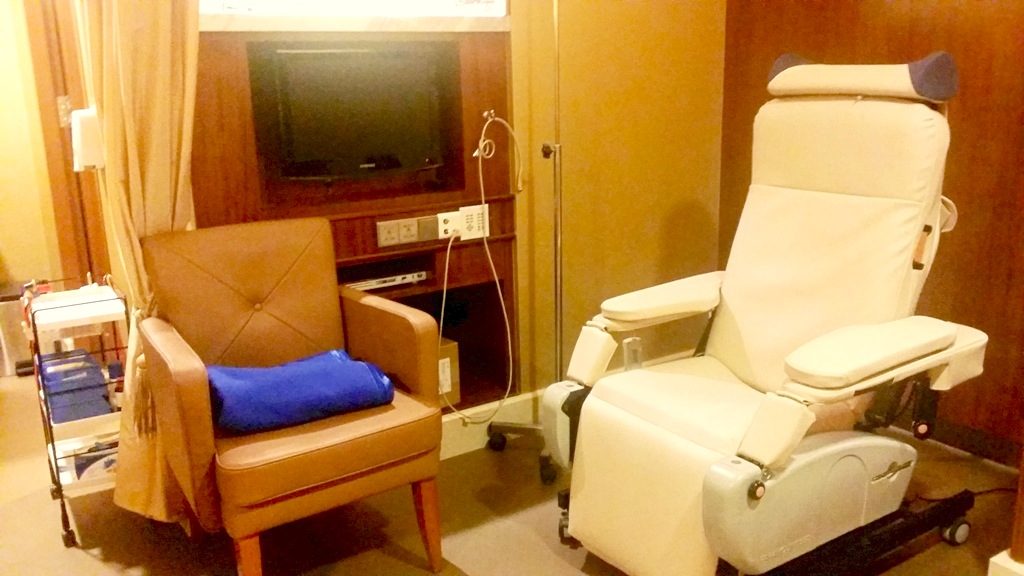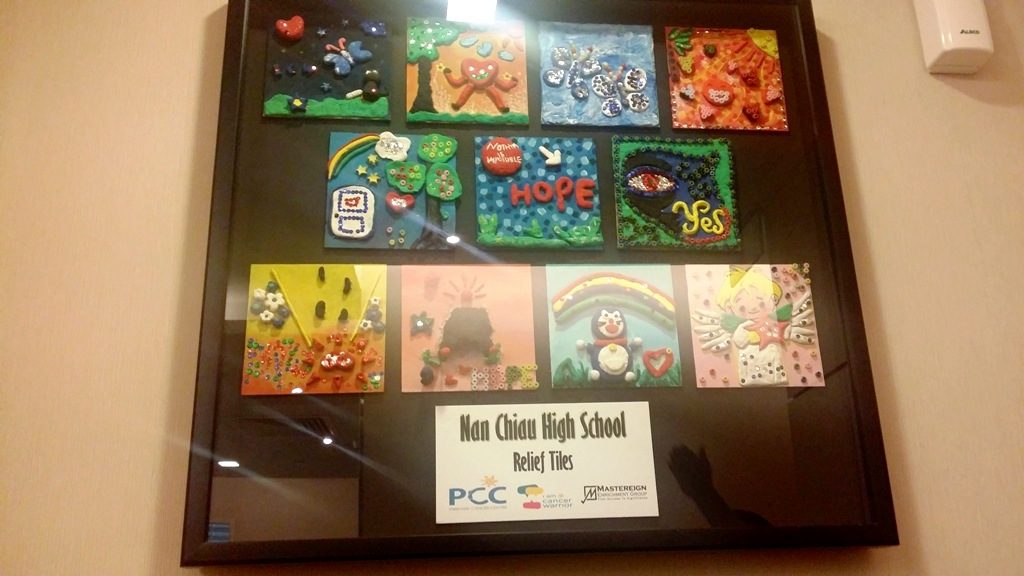
The World Health Organization reports that cancer is one of the leading causes of morbidity and mortality worldwide. As dreadful as it sounds, it gets more difficult when a family or a friend gets diagnosed with one.
Being diagnosed with the big “C” comes with stressful concerns of undergoing medical procedures such as surgery or chemotherapy and its side effects, which in turn, affects the emotional well-being of the patient as well as their caregivers.
Acknowledging that there are other important aspects other than surgery and chemotherapy in cancer treatment, Parkway Cancer Center (PCC) in Singapore provides comprehensive and integrated care to their patients through latest technologies and proven innovative therapies that goes hand in hand with psycho-social support.
PCC vice president Yeo Kim Seck said, “In the old days, when cancer is concerned, once you are diagnosed, you would go to the surgeon, then the surgeon would perform the surgery and then you would go to a medical oncologist for chemotherapy and other treatments. As technology goes by, that process is no longer true. There have been a lot of advancement in the last 10 to 15 years, so therefore, the way we want to care for our patients has been changed.”
Apart from senior consultants who used to head departments of oncology in various hospitals in Singapore as heads of PCC, the center’s multi-disciplinary team includes nurses, counselors, nutritionists, art therapists, and other para-medical professionals.
“We want to make sure that our service covers all aspects of cancer treatment,” Seck said, highlighting that their medical staff delivers a patient-focused and compassionate service.
CanHope
At the heart of PCC’s holistic approach to cancer treatment is CanHope—a non-profit cancer support program that offers services such as counseling, nutrition in cancer care, rehabilitation, palliative care, and support group programs.
Dianah Awaludin, senior executive for Services Operation of CanHope shared, “It’ s not just about taking care of the physical aspect but it’s the entire aspect of a person. It’s about attending to their holistic needs and inspire hope to someone. Through the program, we hope that patient will get some kind of hope ,” she added.
Part of the featured activities in the program include nutrition workshops, cooking classes, and a supermarket tour, where patients and their caregivers can be informed of healthier food choices.
For counseling services, patients can participate in art therapy sessions. The session is a form of psychotherapy that uses art as a medium as a way for patients to communicate with a therapist.
CanHope also conducts dance activities, and a Look Good, Feel Better Workshop, where patients are taught on how to take better care of their hair or wigs as well as how to do their make up.
To date, CanHope has presence in 20 major cities in different countries including Philippines, Myanmar, Malaysia, Indonesia, Vietnam, Bangladesh, Sri Lanka, and Russia.

Friendship
More than the professional relationship of these medical practitioners to their patients is the bond of friendship. More than guiding the patients in their journey on undergoing medical treatments, PCC’s medical staff offers a hand to hold during difficult moments and important occasions on a patient’s life.
“Yes, we are professionals—doctors, nurses, councilors, and dietitians—who will give advice; though sometimes, patients don’t always need advice because they already have all the information. Sometimes, what they need is someone to go to, someone to listen to them, hug them, and empathize with them,” Awaludin said.
“A friend can be the nurse, the doctor, the counselor, it can be me. But it has to be someone they can rely on or someone they can relate to..That’s what we want to create—an environment where they don’t feel threatened or don’t feel sick.
PCC also engages the public to support the battle against cancer through the “I am Cancer Warrior” campaign, which aims to inspire and motivate cancer patients and their family through drawings.
“We go to schools and encourage children to draw their impression of a cancer warrior and then we ask them to donate their artwork to us. We then pass it to cancer patients to tell them that there is someone out there who wants to encourage you on this journey,” Seck said.
“We want to encourage the public to not be fearful of the word cancer. Early detection is a better solution to cancer treatment,” Seck encouraged.

Early detection
Detecting cancer at an early stage reduces the patient’s burden and gives the person a higher chance of recovery.
“We do not only focus on treatment. We want promote early detection, cancer awareness, changing the lifestyle rather than treatment,” Sek told InterAksyon.
Seck also underscored the importance of being diagnosed correctly–the key to administering the precise treatment to a cancer patient, especially since cancer is also a race against time
“In this day, there is targeted therapy or immunotherapy; the technology has now zeroed down to genetic makeup so you can be so precise. Let us avoid missing the target. Only when we get the right diagnosis we can apply the right treatment and the right options doctors can run through,” he said.
That is why PCC works very closely with the diagnostic doctors and pathologists because we need to make sure everything is right,” he added.
Cancer patients and their caregivers also need to be wary of “generalizations.” According to Seck, each cancer journey is different from the other. A patient may have a similar cancer to another, but the experience will be different.
“Because of these generalizations, many patients are fearful that if they had cancer they will die so they won’t get treatment because they think it’s no use. Because of these generalizations they delay treatment then the probability and chance of success becomes lower,” Seck lamented.
“It depends on the genes, it depends on many many components,” he reminded, noting to get correct diagnoses and to seek professional help.
Apart from generalizing cancer, Seck also mentioned that some patients tend to consult the internet instead of seeking medical help.
“That becomes another problem because there is a lot of misinformation,” he said.
Being bombarded with too much information—and sometimes the wrong ones—leads to confusion and more worry.
“Get professional help and medical help,” Sec repeated and emphasized.
PCC centers are present in Gleneagles Hospital in Napier Road; Mount Elizabeth Hospital in Mount Elizabeth; and Mount Elizabeth Novena Specialist Centre in Irrawaddy Road in Singapore. For more information, visit http://www.parkwaycancercentre.com.



